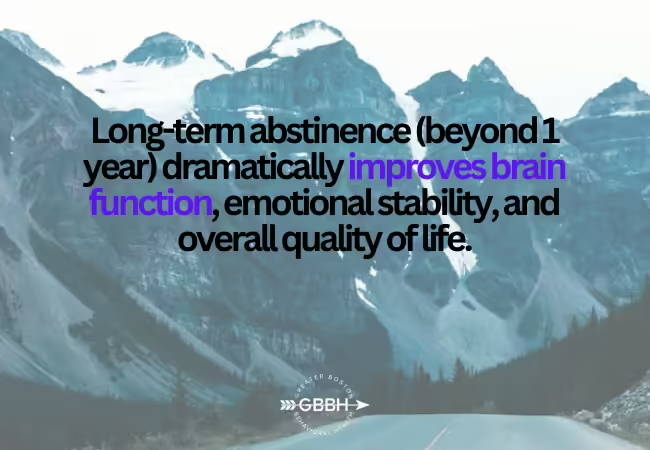Addiction is a chronic condition that not only impacts physical health but also alters the brain’s structure and functioning. Recovery from addiction is more than overcoming cravings; it involves rewiring the brain to break unhealthy patterns and form healthier ones. This process requires time, dedication, and professional support.
For individuals seeking recovery in Boston, accessing resources like behavioral health in Boston, Intensive Outpatient Programs (IOPs), and Partial Hospitalization Programs (PHPs) can accelerate the brain’s healing and improve long-term outcomes. This detailed guide explores how addiction affects the brain, the timeline for recovery, and actionable tips to promote brain healing.
How Addiction Rewires the Brain
Addiction is not just a habit—it fundamentally changes the brain’s structure and functioning, particularly in areas responsible for reward, decision-making, and emotional regulation. These changes explain why addiction is so difficult to overcome and why professional intervention is often necessary.
1. Overstimulation of the Reward System
- The brain’s reward system, centered in the nucleus accumbens, is responsible for processing pleasure and reinforcing behaviors that promote survival, such as eating or social bonding.
- Substances like drugs or alcohol hijack this system by triggering an intense release of dopamine, the neurotransmitter associated with pleasure.
- Over time, the brain adapts to these surges by reducing natural dopamine production and receptor sensitivity, making it harder to feel pleasure without the substance.
2. Impaired Decision-Making
- Addiction weakens the prefrontal cortex, which governs decision-making, impulse control, and self-regulation.
- As the prefrontal cortex deteriorates, individuals become more impulsive and less capable of resisting cravings, even when they understand the negative consequences of their actions.
3. Heightened Stress and Emotional Dysregulation
- The amygdala, the brain’s emotional center, becomes hypersensitive due to addiction.
- This overactivity leads to heightened stress responses, anxiety, and emotional volatility, which can trigger cravings and relapse.
4. Creation of Habit Loops
- Addiction forms habit loops in the brain, where triggers (e.g., stress, social cues) automatically lead to substance use.
- Breaking these loops requires rewiring the brain to form healthier associations and coping mechanisms.
5. Memory and Learning Changes
- The hippocampus, which manages memory and learning, associates substance use with positive feelings and rewards.
- This creates powerful emotional and situational cues that can lead to cravings, even years after achieving sobriety.
Understanding how addiction alters the brain highlights the importance of structured, evidence-based approaches to reverse these changes and support recovery.
Recovery Timeline: Rewiring the Brain
The timeline for brain recovery varies based on factors such as the type of substance used, duration of addiction, and individual health. While there is no universal timeline, the following stages provide a general overview of brain recovery:
1. Acute Withdrawal Phase (First 1–2 Weeks)
- What Happens:
- The brain begins adjusting to the absence of the addictive substance.
- Dopamine levels drop, leading to withdrawal symptoms such as irritability, depression, anxiety, and intense cravings.
- Key Challenges:
- Physical symptoms like headaches, nausea, or tremors.
- Emotional instability as the brain’s reward system recalibrates.
- Support Needed:
- Professional detox services in a mental health treatment center in Boston provide medical supervision and emotional support.
2. Early Recovery Phase (1–3 Months)
- What Happens:
- The brain starts rebuilding neural pathways disrupted by addiction.
- Emotional symptoms, including anxiety and depression, may worsen temporarily due to reduced dopamine activity.
- Cravings remain strong, and triggers can be overwhelming.
- Key Challenges:
- Emotional instability.
- High risk of relapse without structured support.
- Support Needed:
- Therapy through an anxiety treatment program or depression treatment program addresses emotional regulation.
- Structured care like IOPs or PHPs provides accountability and consistent therapeutic intervention.
3. Middle Recovery Phase (3–12 Months)
- What Happens:
- Significant improvements occur in brain function, particularly in decision-making and impulse control.
- Emotional stability begins to return, and cravings become less frequent.
- The brain’s reward system starts to normalize, though it remains vulnerable to triggers.
- Key Challenges:
- Lingering emotional triggers and stressors.
- Developing new coping mechanisms to replace old behaviors.
- Support Needed:
- Continuing therapy to reinforce healthier thought patterns and behaviors.
- Skills-based programs to manage stress and prevent relapse.
4. Long-Term Recovery Phase (1 Year and Beyond)
- What Happens:
- Neural pathways continue to strengthen, supporting healthier habits and emotional regulation.
- The risk of relapse decreases significantly, though vigilance is still required.
- Key Challenges:
- Ongoing life stressors and new triggers.
- Maintaining motivation and commitment to recovery.
- Support Needed:
- Ongoing support groups and aftercare programs help sustain progress.
- Lifestyle adjustments, such as exercise and mindfulness, promote brain health.
Tips to Support Brain Rewiring During Recovery
Rewiring the brain requires a multifaceted approach that addresses physical, emotional, and social aspects of recovery. Here are actionable tips:
1. Engage in Professional Treatment
- Enroll in a mental health treatment center in Boston that offers tailored recovery plans.
- Programs like IOPs and PHPs provide structured therapy and accountability, particularly in the early stages of recovery.
2. Practice Mindfulness and Stress Reduction
- Techniques like meditation, yoga, and deep breathing can help calm the amygdala and reduce reactivity to stressors.
- Mindfulness promotes self-awareness, helping individuals recognize and manage triggers effectively.
3. Commit to Therapy
- Cognitive-Behavioral Therapy (CBT): Helps reframe negative thought patterns and build healthier coping strategies.
- Dialectical Behavior Therapy (DBT): Focuses on emotional regulation, distress tolerance, and mindfulness skills.
4. Build a Support System
- Join support groups like Alcoholics Anonymous (AA), Narcotics Anonymous (NA), or SMART Recovery to connect with others who understand the recovery journey.
- Family therapy can strengthen relationships and provide a supportive home environment.
5. Prioritize Physical Health
- Exercise: Physical activity boosts dopamine and endorphin levels, aiding brain recovery.
- Nutrition: A balanced diet rich in antioxidants, omega-3 fatty acids, and proteins supports brain health and neurotransmitter production.
- Sleep: Adequate rest allows the brain to repair and regenerate neural pathways.
6. Address Co-Occurring Conditions
- Anxiety and depression often co-occur with addiction. Treating these conditions through dedicated programs, like an anxiety treatment program or depression treatment program, ensures comprehensive healing.
7. Embrace Lifelong Learning
- Recovery is an ongoing process. Continued education about addiction, triggers, and coping mechanisms strengthens long-term success.
Why Professional Support is Essential
Recovering from addiction is a complex process that goes beyond detoxification. Professional support provides the tools, resources, and guidance necessary for individuals to rewire their brains, address underlying issues, and achieve lasting recovery. Here’s why it is critical:
1. Expertise in Brain Recovery
- Professionals at a mental health treatment center in Boston understand how addiction affects the brain and design personalized treatment plans to address specific needs.
- Evidence-based therapies like Cognitive-Behavioral Therapy (CBT) and Dialectical Behavior Therapy (DBT) focus on retraining the brain to form healthier patterns.
2. Management of Co-Occurring Disorders
- Over 50% of individuals with addiction also struggle with co-occurring conditions such as anxiety or depression.
- Programs like an anxiety treatment program or depression treatment program address these issues alongside addiction, ensuring comprehensive care.
3. Medical Supervision During Detox
- The acute withdrawal phase can be physically and emotionally intense, with symptoms ranging from severe anxiety to life-threatening complications.
- Professional detox programs provide medical monitoring, ensuring safety and comfort during this critical phase.
4. Structured Support Systems
- Programs like Intensive Outpatient Programs (IOPs) and Partial Hospitalization Programs (PHPs) offer consistent therapy, education, and support during recovery.
- These structured environments help individuals navigate the early stages of sobriety, which are often the most challenging.
5. Relapse Prevention
- Addiction is a chronic condition with a 40–60% relapse rate in the first year of recovery.
- Professional support teaches relapse prevention strategies, such as identifying triggers, managing cravings, and developing healthy coping mechanisms.
6. Addressing Underlying Causes
- Addiction is often a symptom of deeper issues, such as trauma, stress, or unmet emotional needs.
- Therapists help individuals uncover and address these root causes, reducing the likelihood of relapse.
7. Safe and Supportive Environment
- A professional treatment setting provides a judgment-free zone where individuals can focus entirely on their recovery.
- Group therapy and peer support create a sense of community, reducing feelings of isolation and shame.
8. Lifelong Recovery Support
- Recovery doesn’t end after treatment. Professional programs offer aftercare services, including alumni groups, continued therapy, and access to resources that help sustain sobriety long-term.
The Importance of Local Resources
For individuals in Boston, accessing behavioral health in Boston ensures proximity to care and community-based support. Facilities like Greater Boston Behavioral Health provide a range of services tailored to meet the unique needs of individuals recovering from addiction, including therapy, structured programs, and ongoing support.
Professional intervention transforms recovery from a daunting challenge into a manageable process, empowering individuals to reclaim their lives and achieve lasting success.
How Greater Boston Behavioral Health Can Help
At Greater Boston Behavioral Health, we offer a holistic approach to addiction recovery. Our services include:
- Anxiety Treatment Programs: Address co-occurring anxiety disorders to support emotional stability.
- Depression Treatment Programs: Provide tools to manage depressive symptoms during recovery.
- Intensive Outpatient Programs (IOPs): Flexible therapy options for those balancing recovery with daily responsibilities.
- Partial Hospitalization Programs (PHPs): Intensive care for individuals needing more structured support.
- Comprehensive Mental Health Programs: Help individuals develop the skills needed for long-term success.
Our compassionate team is committed to helping individuals heal their brains, rebuild their lives, and achieve lasting recovery.
Final Thoughts
Rewiring the brain from addiction is a gradual process that requires time, dedication, and professional support. While the journey can be challenging, it is also profoundly rewarding. With the right combination of therapy, lifestyle changes, and a strong support system, individuals can rebuild healthier habits and lead fulfilling, addiction-free lives.
If you or someone you love is ready to begin the journey toward recovery, Greater Boston Behavioral Health is here to help. Contact us today at (888)278-0716 to learn more about our programs and take the first step toward a healthier, happier future.
FAQs on How Long Does It Take to Rewire the Brain
How does addiction affect the brain?
Addiction rewires the brain by overstimulating the reward system, reducing natural dopamine production, and impairing areas responsible for decision-making, impulse control, and emotional regulation.
How long does it take to rewire the brain after addiction?
The timeline varies, but recovery typically progresses through stages:
- 1–2 weeks: Acute withdrawal phase.
- 1–3 months: Early recovery with emotional instability and cravings.
- 3–12 months: Brain function improves, and cravings decrease.
- 1 year and beyond: Neural pathways strengthen, and emotional regulation returns to normal.
Can the brain fully heal from addiction?
While the brain may not return entirely to its pre-addiction state, it can form new neural pathways and adapt to healthier patterns over time with proper treatment and support.
What therapies help rewire the brain during recovery?
- Cognitive-Behavioral Therapy (CBT): Helps reframe negative thought patterns.
- Dialectical Behavior Therapy (DBT): Focuses on emotional regulation and coping skills.
- Mindfulness-Based Therapy: Reduces stress and increases self-awareness.
How do lifestyle changes support brain healing?
- Exercise boosts dopamine and endorphin levels.
- Healthy nutrition supports neurotransmitter production.
- Stress management techniques, like yoga or meditation, calm the brain’s emotional centers.
What professional programs are available for addiction recovery in Boston?
- Intensive Outpatient Programs (IOPs): Flexible, structured therapy for recovery while maintaining daily responsibilities.
- Partial Hospitalization Programs (PHPs): Intensive support for individuals requiring frequent therapeutic care.
- Mental Health Programs: Address co-occurring conditions like anxiety or depression.
Why is professional support important in recovery?
Professional support provides access to trained therapists, evidence-based treatments, and structured programs that address addiction’s physical, emotional, and psychological effects.


